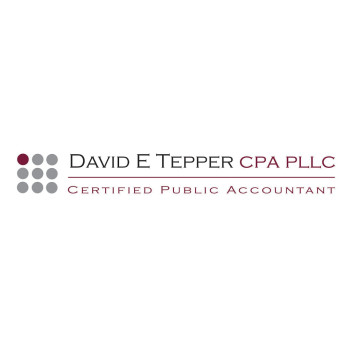
David E. Tepper, CPA, PLLC and RPS Accounting and Tax PC
Reviews Summary
About This Listing
Who Can Work with a CPA?
*Note: CPAs may specialize in different areas. Be sure to check credentials and service offerings.*
First-Time Clients
If this is your first time working with a CPA, don’t worry — most professionals offer a free consultation and will walk you through what to expect. You may be asked to complete an intake form, share financial documents, or set clear goals for your session.
What to Know Upfront:
*Note: Every CPA operates a bit differently. Don’t hesitate to ask questions before committing.*
What to Bring
*Tip: Organize your documents in advance to save time and ensure accuracy.*
Preparing for Your Appointment
*Note: Preparation helps you make the most of your CPA’s expertise.*
How to Get Started
Other Helpful Info
*Note: Every CPA is different — take time to find one who fits your goals and style.*
Features
Contact Information
Address
3205 Randall Pkwy #114
Wilmington, North Carolina 28403
Phone
+1 919-910-0850Hours
Customer Reviews
David has done my taxes for a few years now, and he is always so fast and extremely thorough. Just an all-around pleasure to work with. Highly recommend!
David was extremely helpful with our taxes in 2015. He is very thorough and knowledgeable, he even found deductions that our previous accountant, one of the nationally known firms, had missed. We will definitely be using his services in the future.
What a pro! We live in the Raleigh metro area & are now using David for our taxes vs a local person. He is very thorough, knowledgeable, accessible & prompt to our requirements. David identified deductions that our previous accountant had not plus he is very particular on maintaining security with our confidential information. Simply THEE best CPA!
David?s intelligence and expertise as an accountant is outstanding. His background includes receiving Highest Honors in Mathematics from the University of North Carolina at Chapel Hill for his BA, as well as a Masters in Accounting, followed by a mathematics teaching post at UNC-Chapel Hill. He next worked for several years for Arthur Andersen as a CPA. David also has a Masters in Theology from the University of Oxford in England, and has worked internationally as a specialist in accounting consulting pro
David Tepper provided excellent tax advice for my 2019 taxes. I am completely confident in his professional knowledge and highly recommend him for any complicated tax questions you might have.
David worked very hard on our complicated tax return! We sure appreciate his expert advice.
Just had a very helpful consultation with David - I cannot speak highly enough of his professionalism, care and attention.
I've used Mr tepper for 3 years now. Great guy and great service. Thanks David!
Quick - efficient - caring - very reasonable what more could you want - thanks David